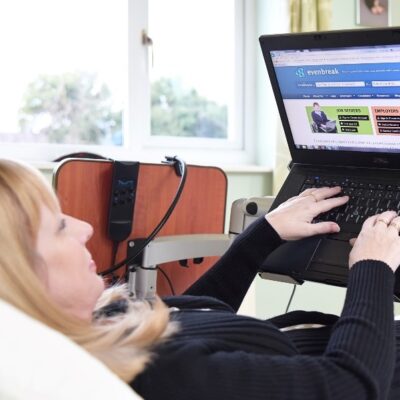We’re all much more aware than we used to be about looking after our mental health. Currently, with the potential anxiety and stress induced by the disruption to our regular lifestyles and routines that coronavirus has brought, it’s more important than ever.
One in six workers are experiencing a common mental health problem according to the charity Mind.
Employers should feel a duty of care, and, as social entrepreneurs are motivated by wanting to do something good, we’d expect our audience to want to help support any of their staff with any mental health issues they are facing.
But as well as a human empathetic response, there are sound business reasons for putting the right support in place – a reduction in days lost to sickness and turnover costs for example, and increasing productivity.
How you look after employees in difficult times also says something about you as a company. If you have a good reputation for looking after staff facing mental health issues, you automatically become a more attractive proposition for future talent.
We try to support every social entrepreneur that uses the Human Lending Library by providing them with resources they tell us they need. Recently we asked Shine Workplace Wellbeing to equip our alumni with the tools to recognise and respond to mental health issues in their teams.
The ‘Workplace Mental Health Awareness Training’ webinars were made possible with the support of players of the People’s Postcode Lottery.
Managing mental health at work does not require additional work; it’s part of good management. Managers have direct and close contact with team members so can spot problems early on.
Here’s what we learnt:
What to look for
Remember that mental ill health can happen to anyone at any time. It is commonly linked to other illnesses and may not necessarily be work related. It can happen independently; there isn’t always a trigger.
The signs of mental ill health vary but can include uncharacteristic changes in a person’s behavioural, physical or emotional state. There may also be changes in their work output, motivation or levels of concentration and focus.
Employees have different thresholds of dealing with stressful situations so there is no one-size-fits-all way to deal with challenges.
Don’t assume you know why a person might be acting differently. Find the right time and way to ask if everything is ok.
When work itself is the cause of anxiety, the Health and Safety Executive’s Management Standards outline six aspects of work that may be the problem.
How to approach the issue
If you think the mental health of a member of your team is affected, carefully consider how you are going to approach the conversation. Is the location of the discussion conducive to a sensitive conversation – can the conversation remain confidential there; is it free of distractions?
Be non-judgemental and empathetic, try to pay attention and be an active listener, and be reassuring. Ask how you can support them going forward and consider work adjustments.
Post conversation, consider drawing up a plan of action, make yourself available for further conversations and check in regularly.
Be aware of your management style – are there people within your organisation better placed to handle sensitive conversations, for example? Are you naturally empathetic?
Next steps
Our friends at Shine also went on to explain how to deal with a mental health related absence (and return to work) and how to create a healthier workplace environment in the first place. We recommend you contact them to find out more.
Many alumni of the Human Lending Library are founders, so the session also covered ways of dealing with stress when you’re the boss, including how to avoid burnout and setting boundaries.
More than 200 social entrepreneurs are now alumni of the Human Lending Library and we regularly offer workshops and training sessions to support them as their organisations change and grow. Click here to find out more.
Photo by Charles Deluvio on Unsplash



